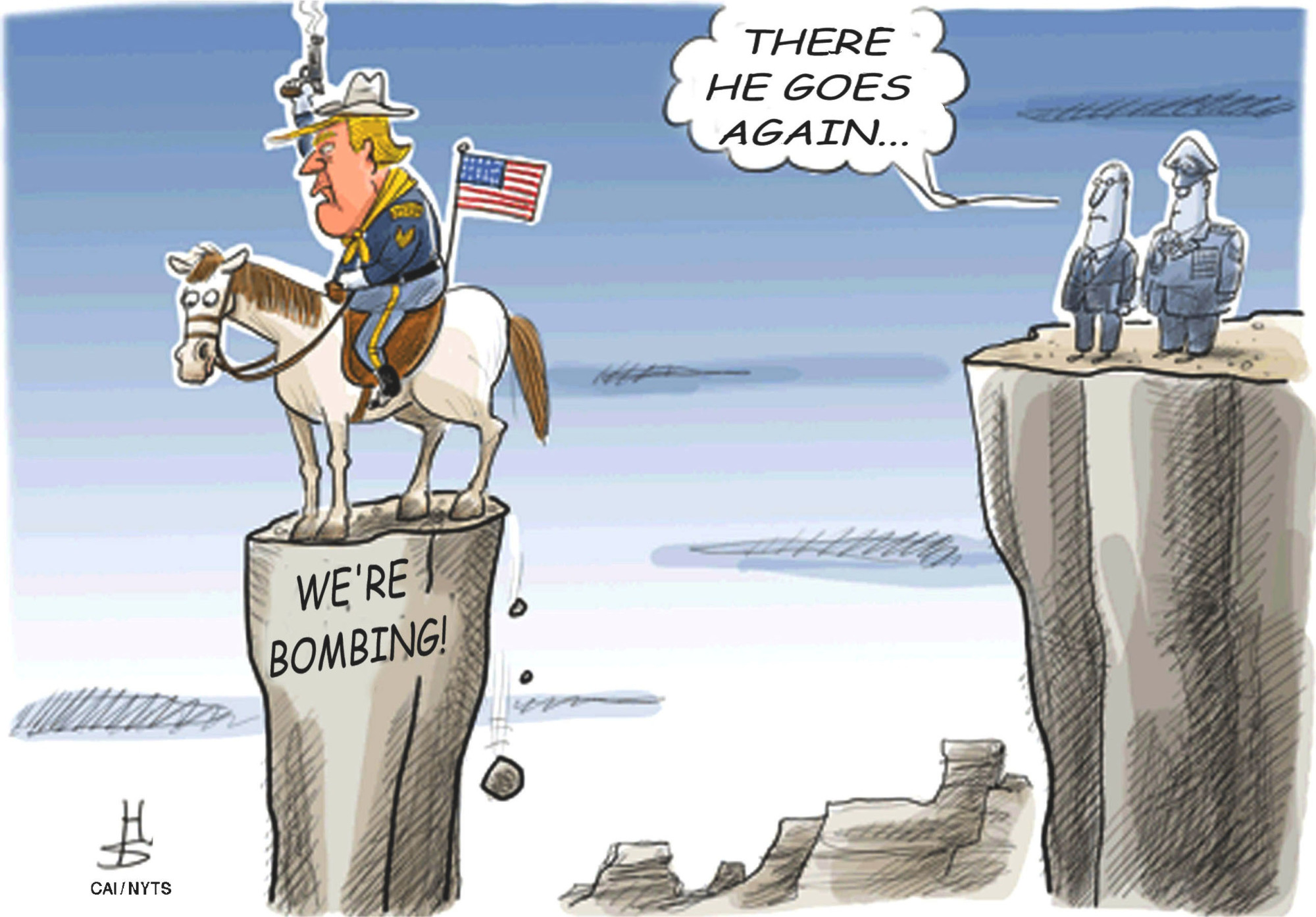On April 13 in Washington, U.S. President Donald Trump ordered an attack against Syria's chemical weapon targets. Simultaneously in Japan, I was supervising a 24-hour war game on a crisis in the Korean Peninsula. This policy simulation event was organized by the Canon Institute for Global Studies (CIGS), an independent think tank in Tokyo.
Since U.S. media had long expected the strike as something coming sooner as well as much larger in scale, I was neither shocked nor surprised at the news. What surprised me most, however, was that the attack this time was just numerically larger (105 missiles instead of 59 in the similar attack a year ago) but not qualitatively.
I rather naively expected a series of U.S. military operations not only against the Syrian forces but also against the Iranian and/or their affiliate forces stationed on the Syrian soil. Simply put, without addressing the Iranian Revolutionary Guard's presence in Syria, there will be no final solution to the tragic civil war.



